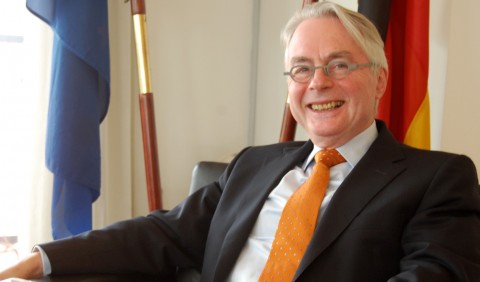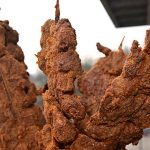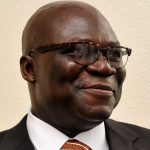Improve Power Supply to boost Foreign Direct Investment, German envoy urges Nigeria
Featured, Interview, Latest Headlines, News, Personality Profile Sunday, September 27th, 2015
By Eric Ojo, Abuja
BALTIMORE, MD, (AFRICAN EXAMINER) – The Ambassador of Germany to Nigeria, Michael Zenner has reiterated the need for the Nigerian government to improve power supply and enact more investor-friendly laws and regulations in order to attract additional Foreign Direct Investment (FDI) to the country.
Zenner said it is imperative for Nigeria to put in place the necessary mechanisms that will create an enabling environment for investments to thrive, adding that such measures must be taken if the country really wants to boost its current FDI profile.
Speaking in an exclusive interview with African Examiner in Abuja, the German envoy noted that the Nigeria-Germany Energy Partnership agreement was initiated in order to ensure full cooperation that will enable the two countries to share experience and expertise.
He added that the cooperation between both countries has culminated in the implementation of projects whereby Germany partners with Nigerian companies in setting up power plants and offer technical assistance in the field of renewable energy through the GIZ, the German international development agency.
He further explained that as part of its on-going projects in the power sector of the Nigerian economy, the foundation for a new gas energy plant was laid in Benin City, the Edo State capital six months ago, adding that a German company is providing the turbines while another company with German roots is involved in the construction of the project.
“We have three projects located in Niger State, Sokoto State and in Cross River State respectively. We are conducting feasibility studies as a first step and later we would follow it up with the installation of solar energy-plants for example. There are already some demonstration plants working”, he said.
The projects, according to him, are geared towards making rural areas, small cities or small towns independent from the national power grid and it is a common knowledge that some of these areas are not connected to the national power grid and where they are connected there are still challenges.
“So we help to develop alternative energy sources, particularly renewable energies in these areas.
In Niger state for instance, there is also the possibility of setting up small water power installations and in some areas you could even install windmills. The first step is to conduct feasibility studies to find out where it would be advisable to use renewable energy and what kind of energy.
“The second step would be the realization of this goal. It is important for a village or a small town to have their own power supply. What’s more once they are connected to the national power grid, they can then even sell the surplus energy to the national power grid. I think it is a double win-win situation”, he added.
On trade relations between the two countries, he noted that Germany’s export from Nigeria currently stands at about €3.9 billion while Nigeria’s import from Germany is in the range of € 1.4 billion.
“Germany can do a lot to increase its exports to Nigeria. Most of the imports of Nigerian goods to Germany are oil and gas. Most of the exports from Germany to Nigeria are in areas, such as machineries for the power sector, industrial plants, automobiles and other areas in the automotive sector”, he stressed.
Zenner who is serving his first diplomatic appointment in an African country, also disclosed that the GIZ in Nigeria is equally very active in the agricultural sector in order to increase the value chain from production to food processing and marketing, noting that another important area is the support of small and medium sized enterprises in Nigeria.
He added that Germany presently has about 80 to 100 companies which are very active in Nigeria and contributing their quarters in different sectors and adding value to the overall economic growth and development of the country.
“The KfW, the German development bank is involved in Nigeria with $200 million in the setting up of the Nigerian development bank. So we are convinced that intermediate organizations, which are in charge of projects financed by our government, do it the right way.
“Bosch a German company, which is well known in the automotive sector has set up a representation in Lagos. Bosch concentrates its activities not only on the automobile area but expands its activities into machinery for food processing industries.
“Bayer, a German pharmaceutical company has also set up a new representation in Nigeria and we have another German company producing trucks and assembling them now in Nigeria as well as another German company Knauf, which is interested in producing building materials in Nigeria. They are known for a special material for ceilings and other installation materials”, he further disclosed.
The German ambassador said Nigeria have had very close cooperation with Germany since her independence in 1960 and that both countries have worked together in areas such as politics, economy, culture, academic exchange and vocational training.
“It is very important to state that Nigeria is among the few countries with which Germany has a Bi-National Commission with. There are only two of such countries in Sub- Saharan Africa for us. This Bi-National Commission covers a whole range of our cooperation and relations in the political, economic, cultural sectors”, he added.
He further noted that President Mohammadu Buhari has also lent his voice to the importance of economic and commercial cooperation between Germany and Nigeria, adding that Buhari re-affirmed it when he was in Germany during the G7 outreach meeting where he met with the German Chancellor, Angela Merkel, and held talks also on bilateral issues.
While responding to question relating to combating terrorism through military cooperation between both countries, he said the issue of how to tackle international terrorism which is a global problem was discussed extensively at the G7 Summit in June, including that of the lingering insurgency in the North-East of Nigeria.
According to him, there was exchange of views regarding the cooperation in the North-East of Nigeria and all G7 countries, and the other countries invited to the meeting were on the side of Nigeria.
“They agreed on how to cooperate in order to tackle this terrorist problem. These talks are still ongoing. I would like to mention that Germany is very much involved in the project in order to reduce the trade in Small Arms and Light Weapons (SALW) around Nigeria.
We have two projects with the Nigeria Armed Forces; one of them is a medical centre in Jaji linked to the Nigerian Peace Corps and another is the Mechatronic Workshop here in Abuja. The workshop is doing vocational training in particular”, he further revealed.
Related Posts
Short URL: https://www.africanexaminer.com/?p=26005




















